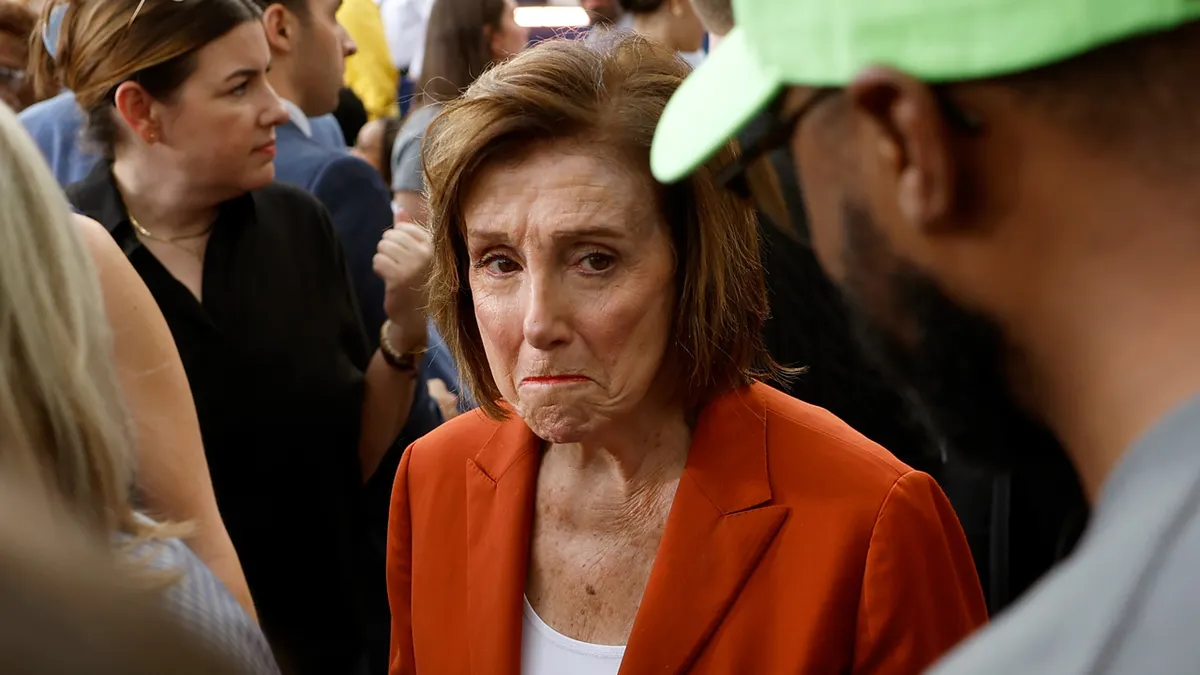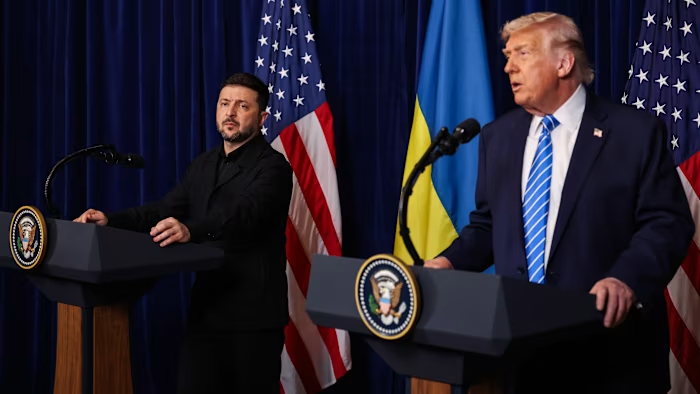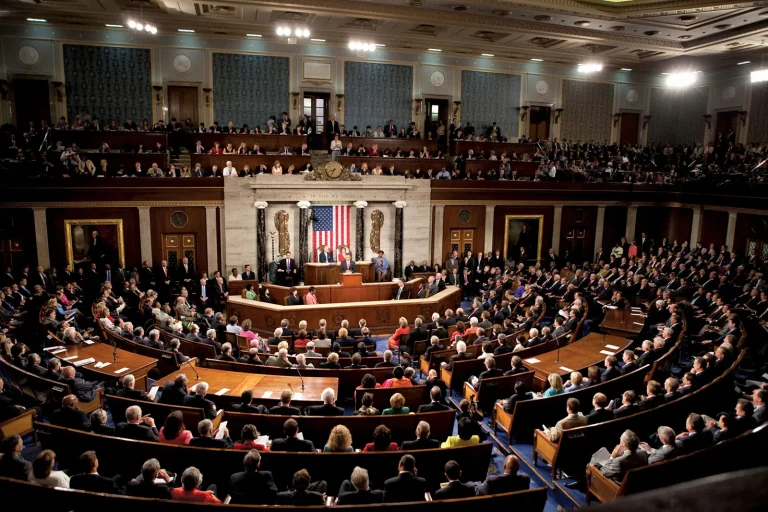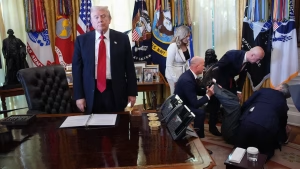After nearly forty years in public office, former House Speaker Nancy Pelosi has announced that she will not seek reelection to Congress, marking the end of one of the most consequential political careers in modern American history.
Pelosi, 85, shared her decision in a heartfelt message to her constituents, reflecting on her decades representing San Francisco and her lifelong dedication to public service. She expressed gratitude for the opportunity to serve and optimism about the future of her city and the nation.
“I have truly loved serving as your voice in Congress,” she said. “With a grateful heart, I look forward to my final year of service as your proud representative. As we go forward, my message to the city I love is this: San Francisco, know your power. We have made history. We have made progress. We have always led the way, and now we must continue to do so.”
Her announcement ends months of speculation that she would retire at the end of her current term. It also marks the close of a remarkable political era defined by Pelosi’s unique combination of strategic precision, party discipline, and groundbreaking leadership.
A Historic Career in Washington
Pelosi’s journey in Congress began in 1987 when she won a special election to represent California’s 5th District. Her rise through the ranks was steady and deliberate, shaped by decades of experience in the Democratic Party and an instinct for legislative strategy.
In 2007, Pelosi made history as the first woman ever elected Speaker of the House of Representatives, a position she would hold twice, from 2007 to 2011 and again from 2019 to 2023. Her tenure was defined by landmark legislation, fierce political battles, and a commanding influence over her party.
Pelosi’s leadership extended beyond her role as Speaker. She became the Democratic Party’s chief strategist in Congress, guiding major legislative victories and maintaining unity during some of the most polarized periods in U.S. political history.
She often remarked that the greatest honor of her career was to stand on the House floor and declare, “I speak for the people of San Francisco.”
Early Life and Rise to Power
Born into a politically active family in Baltimore’s Little Italy neighborhood, Pelosi grew up surrounded by public service. Her father, Thomas D’Alesandro Jr., served as both a congressman and later mayor of Baltimore. Her brother also held the same mayoral post, continuing the family’s deep political legacy.
That upbringing instilled in her the discipline and resilience that would later define her leadership style. Known for her sharp negotiating skills and unwavering confidence, Pelosi built a reputation for mastering the procedural intricacies of the House and ensuring her caucus remained united on key votes.
Throughout her career, she rarely lost a floor vote—a testament to her ability to manage competing interests within her party.
Legislative Achievements and Political Legacy
Pelosi’s legislative record reflects a deep imprint on nearly every major domestic policy debate of the past two decades. She was a central architect of the Affordable Care Act, navigating political divisions and intense opposition to secure one of the most transformative health care reforms in American history.
Her work also encompassed economic recovery measures, environmental protection, and social justice initiatives. Under her leadership, Congress passed the Dodd-Frank financial reform act following the 2008 financial crisis and expanded protections for LGBTQ+ Americans.
In 2019, during her second speakership, Pelosi oversaw the passage of major pandemic relief bills and the Infrastructure Investment and Jobs Act, both of which aimed to stabilize and modernize the American economy.
She also played a crucial role in advancing clean energy investments and defending social welfare programs, earning her a reputation as one of the most effective legislative tacticians in U.S. history.
Relationship with Presidents and Political Battles
Pelosi’s career spanned seven presidencies, from Ronald Reagan to Joe Biden, and included both moments of collaboration and confrontation. She developed strong working relationships with Democratic presidents, often helping to shepherd their agendas through Congress.
Her tenure also included intense clashes with Republican administrations, particularly during the presidency of Donald Trump. Pelosi’s public confrontations with Trump, including her decision to tear up his State of the Union address in 2020, became defining moments of her speakership.
Those years were marked by two impeachments of Trump, extensive oversight investigations, and fierce partisan conflict. Yet even amid those divisions, Pelosi remained a formidable force—praised by allies for defending democratic institutions and criticized by opponents for her unyielding control.
Her relationship with President Joe Biden was characterized by mutual respect and shared priorities. Together, they helped enact sweeping economic recovery measures and healthcare expansions. Pelosi later received the Presidential Medal of Freedom from Biden in recognition of her decades of public service.
A Leader Through Turbulent Times
Pelosi’s time in office coincided with some of the most tumultuous moments in recent U.S. history. She led the House through the aftermath of the September 11 attacks, the Great Recession, the COVID-19 pandemic, and the January 6, 2021, attack on the U.S. Capitol.
During that violent assault, rioters breached her office and terrorized her staff. The event reinforced her long-standing commitment to preserving the rule of law and democratic governance, themes that have shaped much of her rhetoric in recent years.
Beyond the political arena, Pelosi also faced personal challenges. In 2022, her husband, Paul Pelosi, was the victim of a brutal home invasion that left him seriously injured. The attack, motivated by political extremism, further highlighted the growing threats faced by public officials and their families.
Despite these hardships, Pelosi continued to serve with what colleagues described as extraordinary resolve and grace.
Championing Representation and Equality
Pelosi’s leadership paved the way for a new generation of women in politics. She often avoided self-congratulation but acknowledged the symbolic importance of her position as the first female Speaker.
In her first address holding the gavel in 2007, she declared, “It is a moment for which we have waited over 200 years.” That statement became a defining expression of her commitment to breaking barriers and inspiring women across the country to pursue public office.
Over the years, Pelosi became a mentor to numerous female lawmakers, emphasizing the importance of preparation, persistence, and courage in navigating the male-dominated world of national politics.
She often remarked that being underestimated was one of her greatest political advantages, allowing her to achieve victories that others dismissed as impossible.
Legacy of Power and Discipline
Pelosi’s control over her caucus was often described as near absolute. She combined traditional political strategy with a modern understanding of communication and coalition building. Her leadership style was grounded in loyalty and accountability—qualities that helped Democrats maintain unity on contentious votes, from healthcare reform to impeachment.
Behind the scenes, Pelosi was known for her tireless work ethic and attention to detail. She studied legislation line by line, held late-night meetings to secure votes, and kept meticulous track of her members’ concerns.
Her strategic approach ensured that Democrats rarely entered key votes unprepared, even when major bills faced narrow margins.
Pelosi’s ability to raise funds also set her apart. Over the course of her career, she generated hundreds of millions of dollars for Democratic campaigns, strengthening her party’s infrastructure and influence across the country.
The End of an Era
Pelosi’s decision to retire comes after decades of transformative change in both her party and the nation. She leaves behind a Democratic caucus that is younger, more diverse, and more progressive than the one she first led.
Even as she prepares to leave public office, her influence continues to shape the party’s direction, from redistricting efforts in California to broader national strategy.
Her recent work to secure a major ballot initiative favoring Democratic congressional maps in California was widely seen as a final political victory before her departure.
Reflections and Farewell
In her farewell message, Pelosi encouraged Americans to stay engaged in civic life and defend democratic values. “We must remain full participants in our democracy,” she said. “We must continue to fight for the American ideals we hold dear.”
Her colleagues from both parties acknowledged her historic role in Congress, describing her as one of the most skilled and influential leaders of the modern era.
As she prepares for her final year in office, Pelosi’s departure symbolizes both the end of a political dynasty and the continuation of her enduring legacy. She remains a towering figure in American politics—one whose imprint on legislation, leadership, and the role of women in government will be felt for generations.

Emily Johnson is a critically acclaimed essayist and novelist known for her thought-provoking works centered on feminism, women’s rights, and modern relationships. Born and raised in Portland, Oregon, Emily grew up with a deep love of books, often spending her afternoons at her local library. She went on to study literature and gender studies at UCLA, where she became deeply involved in activism and began publishing essays in campus journals. Her debut essay collection, Voices Unbound, struck a chord with readers nationwide for its fearless exploration of gender dynamics, identity, and the challenges faced by women in contemporary society. Emily later transitioned into fiction, writing novels that balance compelling storytelling with social commentary. Her protagonists are often strong, multidimensional women navigating love, ambition, and the struggles of everyday life, making her a favorite among readers who crave authentic, relatable narratives. Critics praise her ability to merge personal intimacy with universal themes. Off the page, Emily is an advocate for women in publishing, leading workshops that encourage young female writers to embrace their voices. She lives in Seattle with her partner and two rescue cats, where she continues to write, teach, and inspire a new generation of storytellers.









